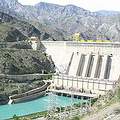 中亞各國為了水資源分配問題歷來政治爭端不斷,在歐盟協調與支援下,未來中亞可望成立一區域性的水及能源研究機構,以協助解決此類問題。
中亞各國為了水資源分配問題歷來政治爭端不斷,在歐盟協調與支援下,未來中亞可望成立一區域性的水及能源研究機構,以協助解決此類問題。
3月28日,歐盟代表及中亞五國外交首長在哈薩克首府阿斯塔納(Astana)舉行協商會議,吉爾吉斯外交部長可拉巴(Ednan Karabaev)在會中提出上述計畫,倡議在歐盟支援下,於吉爾吉斯首都畢斯凱(Bishkek)建立一所水與能源機構。
中亞最大河流的源頭位於吉爾吉斯及塔吉克(Tajikistan)的交界山嶺間。這兩個國家主要利用上游的水作為水力發電用,而烏茲別克(Uzbekistan)及哈薩克(Kazakstan)則是仰賴下游的水,作為農田灌溉用水。雖然許多機制及計畫已在管理水源,但位於上、下游的國家,還是對於用水方式無法達成共識,而時有衝突。吉爾吉斯及塔吉克的政治水利分析專家表示,必須設立一個區域性的水資源管理學術機構,可協助中亞地區各國在水資源分配上達到共識。
位於杜尚貝(Dushanbe,塔吉斯坦首都)的「搶救鹹海國際基金會」的技術總監科瑪朵夫(Anatoliy Kholmatov),他指出,在2003年舉行的淡水議題國際論壇中,已有類似的提議,該項提案之後促成在杜尚別成立了「國際水資源研究中心」,進行水資源、相關社會議題以及發電問題的研究。此中心目前正建制中。
不過,科瑪朵夫也表示,當前中亞地區急需進行研究來發展出一套共享水資源的經濟機制,因此支持吉爾吉斯的提議。不過,幾乎所有接受記者採訪的專家均認為,僅僅強化研究能力,尚不足以解決水資源爭端,必須要有政治意願才行。
A proposal by Kyrgyz Foreign Minister Ednan Karabaev to establish a regional research institute for water and energy could help end the persistent political wrangling over cross-border water use in Central Asia. During a meeting between European Union delegates and foreign ministers from all five central Asian states in Astana on March 28, held to consult on the new EU strategy for the region, the Kyrgyz foreign minister put forward a proposal to set up a Water and Energy Academy in the Kyrgyz capital of Bishkek, with the EU's support.
Central Asia's largest rivers have their sources in the mountains of Kyrgyzstan and Tajikistan. These two countries use the water flow mainly to generate electricity, whereas Uzbekistan and Kazakstan further downstream rely on the water for crop irrigation. Although numerous mechanisms and plans have been produced to manage water use, the upstream and downstream countries have failed to agree on terms that would be acceptable to all. Political and water analysts in Kyrgyzstan and Tajikistan say developing a regional-level academic centre for water management could help Central Asia reach a common view of how the resource should be distributed.
Anatoliy Kholmatov, technical director at the International Fund for Saving the Aral Sea based in Dushanbe, Tajikistan, points out that a similar initiative was launched in 2003 at an international forum on fresh water. The plan then was to have an International Water Center based in Dushanbe to look at water, related social issues, and electricity generation. The center is currently under construction.




